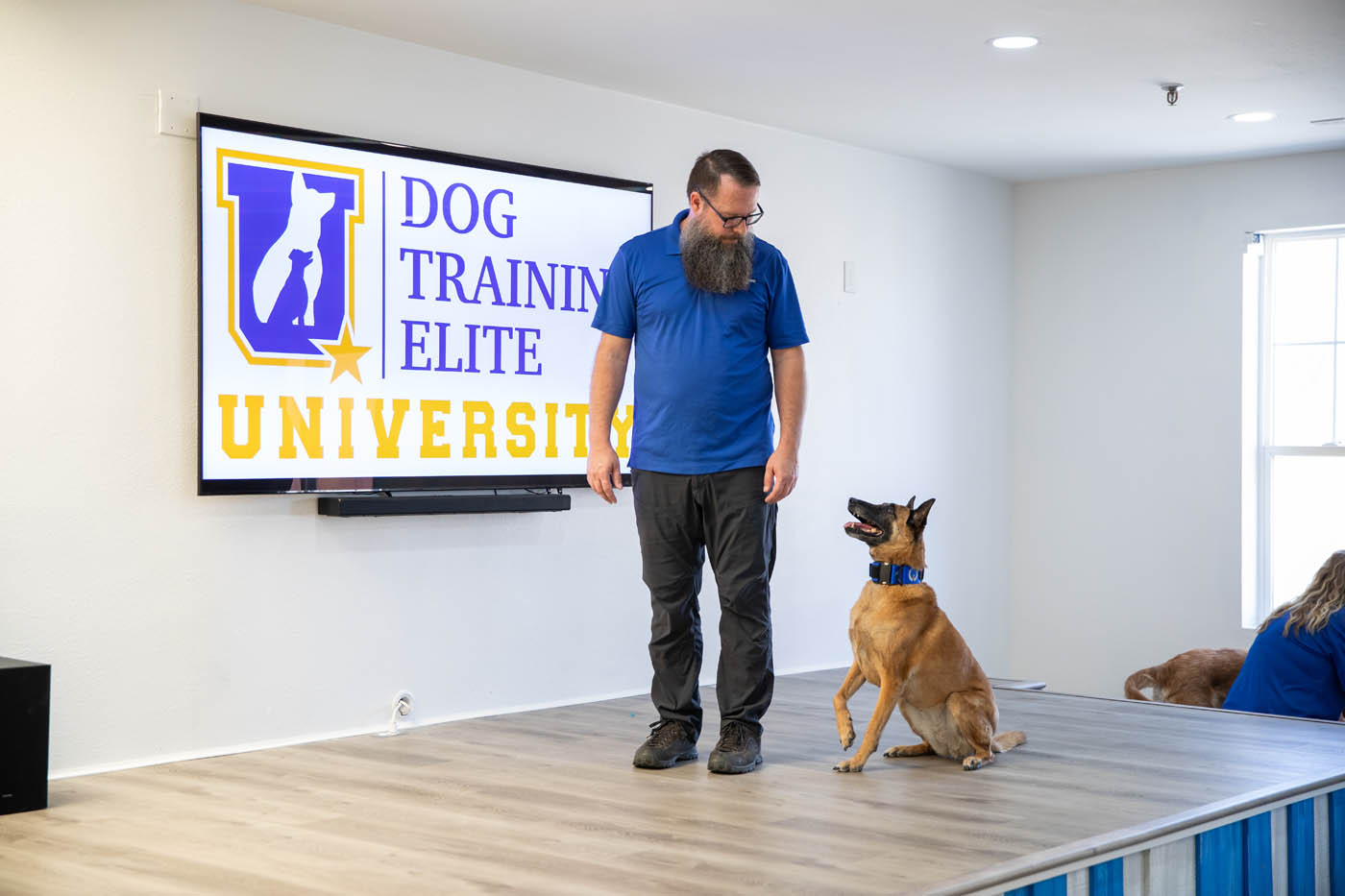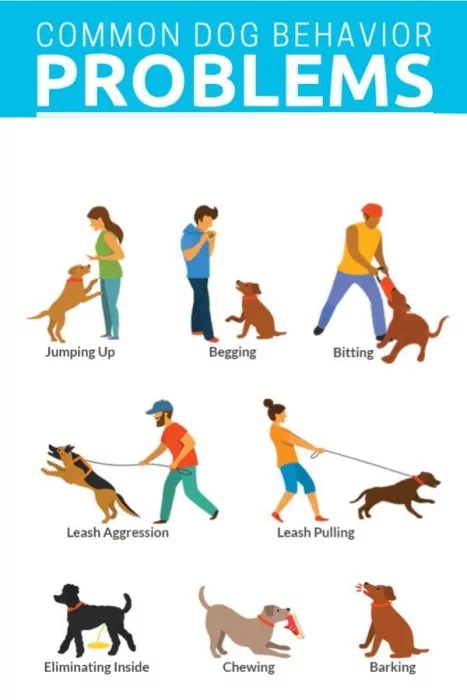Dog Training Charlotte NC: Your Path to a Well-Behaved Dog
Wiki Article
Unlock Your Dog's Possible: Proven Canine Training Strategies for Success
Effective pet training is a nuanced process that hinges on recognizing canine habits and using scientifically backed approaches. By incorporating positive reinforcement, developing clear commands, and focusing on socialization, canine proprietors can grow a productive relationship with their family pets.Recognizing Dog Behavior
Comprehending pet dog habits is crucial for efficient training and cultivating a favorable connection between canines and their owners. An extensive grasp of canine body language, articulations, and social communications is critical for identifying their emotions and demands. Pet dogs interact mainly through non-verbal signs; as an example, a wagging tail may show enjoyment, while pinned ears can signal anxiety or submission.
Furthermore, ecological aspects play a considerable function fit a pet's habits. Modifications in routine, brand-new surroundings, or the existence of unknown individuals can result in stress or anxiety in pet dogs. Acknowledging these triggers allows proprietors to minimize adverse reactions and create suitable training strategies.
Inevitably, a deep understanding of pet dog behavior lays the structure for successful training approaches, improving both habits and the total bond between the pet dog and its proprietor. dog training near me. This knowledge is important for promoting a well-adjusted, pleased canine buddy
Favorable Support Strategies
Efficient training counts greatly on positive reinforcement methods, which have been revealed to generate significant lead to shaping preferred habits in dogs. This technique involves awarding a dog for exhibiting specific actions, thus increasing the probability that these actions will be repeated. Rewards can take different types, including deals with, praise, toys, or playtime, depending on what inspires the individual pet dog.
It is essential to progressively terminate rewards as the pet discovers the habits, transitioning to periodic reinforcement. This approach keeps the habits with time while avoiding dependency on constant incentives. By focusing on positive reinforcement, instructors can cultivate a trusting partnership with their pets, advertising a cooperative and healthy and balanced training environment that improves total obedience and efficiency.
Establishing Regular Commands
A basic element of effective pet training is the establishment of regular commands. Consistency in commands is critical for reliable communication between the pet and the trainer. When commands are consistent, pets learn to link specific words with preferred behaviors, which speeds up the training process and improves understanding.To develop consistent commands, it is essential that all member of the family utilize the same terminology and motions. If one individual uses "rest" while an additional says "rest down," it can create complication for the dog. Select clear, distinct words for commands and guarantee everybody associated with the pet dog's training sticks to these selections.
Furthermore, repetition is essential. Enhance commands via frequent practice, making certain that the pet gets sufficient possibilities to respond correctly. When a dog successfully adheres to a command, immediate positive reinforcement should adhere to. This could be in the kind of deals with, praise, or playtime, strengthening the link in between the command and the activity.
Last but not least, be individual. Developing constant commands takes time and effort. With devotion and clarity, you will assist your dog create a strong understanding of expectations, eventually leading to a well-behaved friend.
Socialization and Direct Exposure
Interacting socially a canine is crucial for fostering a well-adjusted and positive companion. This procedure involves exposing your pet dog to a range of settings, people, and other animals to create their social abilities and adaptability. Early socializing, ideally between the ages of three to fourteen weeks, is essential, as it lays the groundwork for a dog's future actions.
Throughout socializing, purpose to supply positive experiences in various setups, such as parks, busy roads, and homes with various other family pets. Introduce your dog to various stimulations, including noises, views, and smells, guaranteeing that each experience is satisfying. This direct exposure assists mitigate fear and anxiety, leading the method for a more durable pet dog.
Taking part in controlled group play sessions with various other canines can likewise boost Dog training social abilities, educating your pet dog proper interactions and borders. Always check your pet dog's convenience level during these experiences, slowly enhancing direct exposure as their self-confidence grows. Bear in mind, the objective is to develop an all-round animal that grows in varied situations, advertising a harmonious connection with both humans and various other pets. Focusing on socializing will dramatically add to your pet dog's total happiness and actions throughout their life.
Overcoming Common Training Difficulties

Another regular problem is disturbance. Canines may have a hard time to focus in strange or hectic setups. Gradually desensitize your pet to disturbances by starting training in a peaceful environment and gradually presenting more stimuli as they come to be skillful (dog training charlotte nc). Favorable reinforcement techniques, such as treats and appreciation, can maintain inspiration and focus.
In addition, behavioral problems like leaping or excessive barking can end up being discouraging. Address these by showing alternate habits, such as resting calmly when greeting guests. Uniformity and patience are important; strengthen preferred behaviors consistently and avoid abuse, which can cause confusion.
Lastly, identify that each pet is special, and training timelines might differ. Dressmaker your strategy to your canine's specific requirements, and seek specialist assistance if needed. With willpower and the best techniques, overcoming these obstacles can lead to a trained, happy canine companion.
Final Thought
Finally, unlocking a canine's prospective demands a comprehensive technique that integrates an understanding of canine habits, the application of positive reinforcement methods, and the facility of regular commands. Early socialization and exposure to varied settings additionally boost a dog's versatility and self-confidence. By dealing with typical training obstacles with tailored techniques and perseverance, a harmonious and cooperative relationship between pet dog and trainer can be promoted, eventually causing a well-behaved friend capable of flourishing in different situations.Effective canine training is a nuanced procedure that pivots on comprehending canine behavior and using clinically backed methods.Comprehending dog behavior is essential for reliable training and cultivating a positive partnership in between pets and their owners.Efficient training relies greatly on favorable reinforcement methods, which have actually been revealed to yield significant results in forming desired actions in pets. When commands are consistent, dogs discover to associate details words with desired actions, which increases the training process and boosts understanding.
In final thought, unlocking a pet's possible requires a detailed method that includes an understanding of canine behavior, the application of favorable reinforcement techniques, and the establishment of regular commands.
Report this wiki page